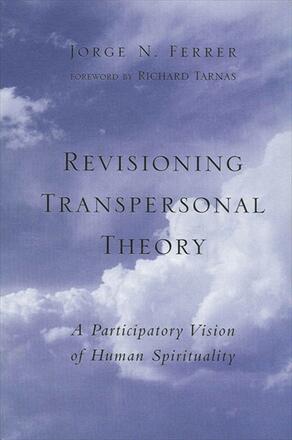
Revisioning Transpersonal Theory
A Participatory Vision of Human Spirituality
Alternative formats available from:
A participatory alternative to the perennialism and experientialism dominant in transpersonal psychology.
Description
In his striking debut, Jorge N. Ferrer deconstructs and reconstructs the entire transpersonal project, articulating a more sophisticated, pluralistic, and spiritually grounded transpersonal theory. He brings recent ideas in epistemology and the philosophy of science to bear upon core issues in the psychology and philosophy of religion. The book's first half (Deconstruction) describes the nature and origins of the prevailing vision that has guided transpersonal scholarship so far, and identifies some of its main conceptual and practical limitations: subtle Cartesianism, spiritual narcissism, intrasubjective empiricism, and reductionistic universalism. In the second half of the book (Reconstruction), Ferrer suggests a way of reconceiving transpersonal ideas without these limitations—a participatory vision of human spirituality, one which not only places transpersonal studies in greater alignment with the values of the spiritual quest, but also discloses a rich variety of spiritual liberations, spiritual worlds, and even ultimate realities.
Jorge N. Ferrer is Assistant Professor of East-West Psychology at the California Institute of Integral Studies.
Reviews
"This book is an important and valuable contribution to [the] understanding and defining of transpersonal psychology. " — Breathe Magazine
"A fascinating and excellent companion to the work of Ken Wilber, this volume is written in a respectful yet challenging manner that offers the reader an intellectual exercise in transpersonal history. Ferrer's thoughts have a good deal in common with those of Chogyan Trungpa and Alan Watts, but with a very analytical edge. Highly recommended. " — CHOICE
"This is a brilliant and mature book that is bound to become a classic. Extremely well researched and documented and full of remarkable insights and ideas, it is not only an important original contribution to the theory of transpersonal psychology, but also a work that brings clarity into many problem areas that in the past were plagued by confusion and controversy. It very likely will prove influential in determining which direction the development of transpersonal psychology will take in the future. " — Stanislav Grof, author of Psychology of the Future: Lessons from Modern Consciousness Research
"Ferrer's narrative opens one surprise after another until slowly the reader begins to 'wake up' and finds him or herself thinking about old problems in a new way. It is learning how to think in this fresh way, free from the grid of conventional transpersonal theory, that is the true accomplishment of this work. Revisioning Transpersonal Theory represents a significant turning point in transpersonal thought. " — Christopher M. Bache, author of Dark Night, Early Dawn: Steps to a Deep Ecology of Mind